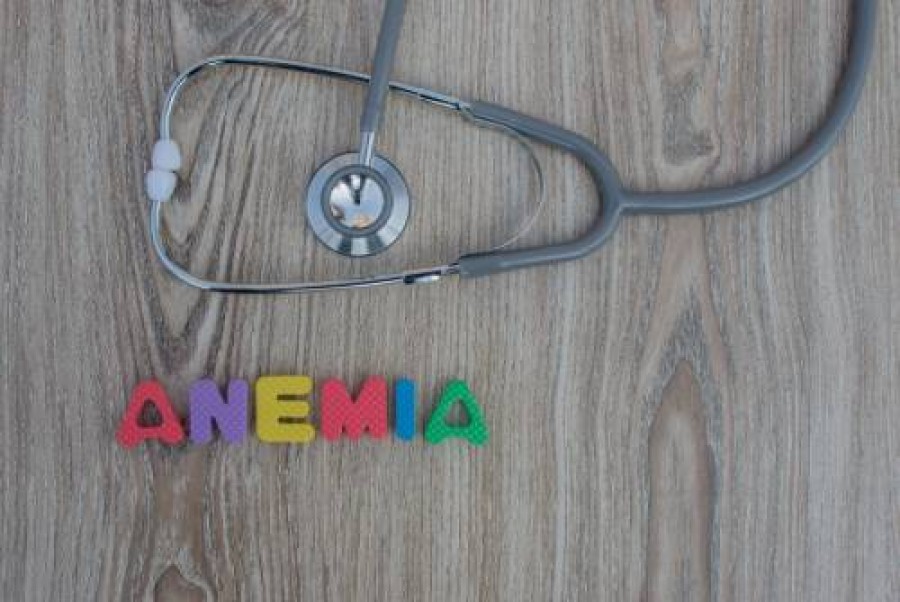Anemia and Pregnancy: Causes, Types and Prevention

During pregnancy you’ll get to experience many weird and wonderful sensations and changes to the way your body works. Some of them can be good, and some of them will be not so good. While every woman is different and will experience pregnancy slightly differently, it’s always a good idea to be aware of the different complications and changes that can occur and how they might impact you and your health negatively. Being aware of the different symptoms and conditions means you’ll know what to look out for and when you need to speak to your doctor for further tests and support. One of the conditions that can arise during pregnancy that you need to look out for is anemia.
What is anemia?
The red blood cells in our body are made up of a combination of iron & protein called hemoglobin. Blood is made and destroyed in our body every three months. We need a constant supply of iron in our body so that it can continue to produce hemoglobin and keep us healthy, strong and able to function properly as our body goes through this process of destroying old blood and producing new blood. Blood is made in the spine and destroyed by the spleen. Normal hemoglobin (Hb) levels in non-pregnant women is 12-14mg/dl , whereas the normal values of Hb in pregnant women is 12-16mg/dl. This is because the Hb requirement increases during pregnancy while you try and grow a healthy baby. Anemia – otherwise known as iron deficiency – occurs when there is not enough iron in your body, making it difficult for your body to produce enough healthy red blood cells. When your Hb count drops below 10mg/dl, this is when you are usually at risk of suffering from anemia.
What are the different types of anemia?
There are three main types of anemia, defined by what their primary cause is. These are:
1) Iron Deficiency Anemia
As described above, this is when your body is lacking in iron and therefore unable to produce enough healthy red blood cells.
2) Folate Deficiency Anemia
Much like with iron deficiency anemia, folate deficiency anemia is caused by a lack of folate in your body. Otherwise known as folic acid, folate is a type of vitamin b and is crucial for helping your baby develop in the womb normally.
3) Sickle Cell Anemia
Unlike the other two forms of anemia, sickle cell anemia is an inherited condition and is not related to a lack of nutrients in your body. In this case, your blood cells are deformed and unable to carry enough oxygen around your body. This form of anemia has no cure but treatments are available.
How does anemia affect me during pregnancy?
If left untreated, anemia can have a significant impact on your health, and the health of your baby. As mentioned above, in the case of folate deficiency anemia, folate is essential to ensure the healthy development of your baby including:
- Reduction in the growth of your baby
- Increased risk of premature birth
- Birth defects or mutations of the baby during development
- Higher chance of miscarriage
A mild iron deficiency shouldn’t have too much of an impact on you and your baby but you might experience symptoms such as:
- Fatigue, even after a good night’s rest
- Low appetite
- Lethargy
- Low mood and irritability
- Increase risk of urinary tract infections
As you can tell, these are pretty normal symptoms of being pregnant anyway! If you do find yourself experiencing these more frequently, or it’s becoming a problem in you being able to carry out your daily tasks, make sure you speak with your doctor who can test your levels and provide further advice.
How can I prevent anemia during pregnancy?
For iron and folate deficiency anemia, the key really is to make sure you’re eating a healthy iron rich diet, and foods that contain your daily recommended intake of folic acid. Speak with your midwife who’ll be able to help you with dietary tips and advice. You might also be able to take a natural supplement if you’re really concerned, or have experienced periods of anemia in the past. If you suffer from sickle cell anemia, you will likely already be on medication and a treatment plan. It’s really important to speak and work with your doctor and midwife during your pregnancy so that you can make sure you’re getting the best support you need during this transition.
A Summary of Anemia in Pregnancy
| Type of anemia | Cause | Fetal effects | Treatment |
| Iron deficiency anemia | Decreased iron | Growth retardation early birth(preterm baby) | Take iron supplements |
| Folate deficiency anemia | Decreased folic acid | Growth retardation Brain & spine defects Preterm birth | Take folic acid supplements |
| Sickle cell anemia | Abnormal blood cells | Increased urinary infections Spontaneous abortions Fetal deaths | Take folic acid Monitor baby growth Avoid decreased Oxygen conditions e.g. infections, height etc. |


